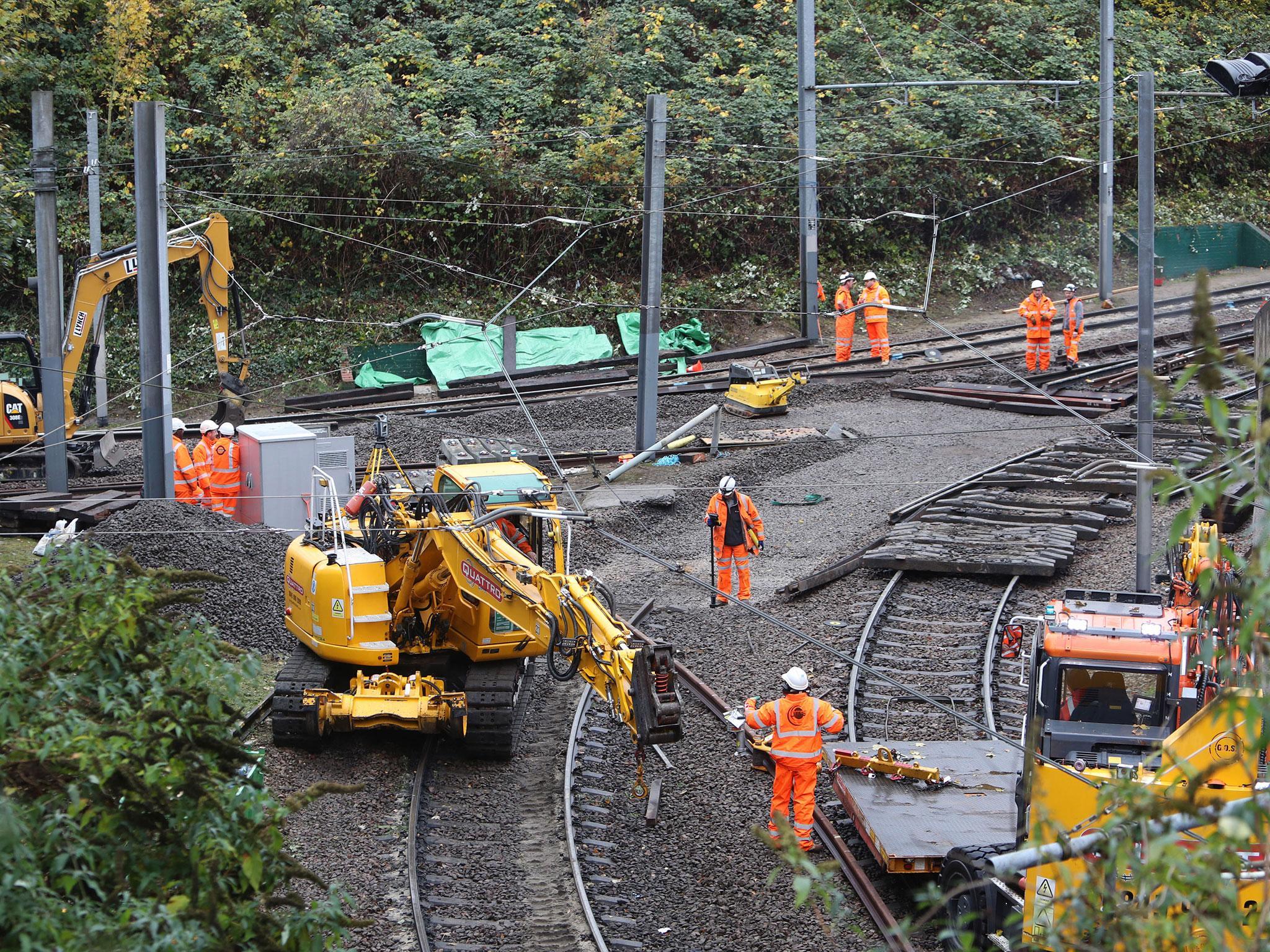Croydon tram crash inquest: Passengers not unlawfully killed, jury concludes
Seven people died and 51 were injured in the 2016 crash

Your support helps us to tell the story
From reproductive rights to climate change to Big Tech, The Independent is on the ground when the story is developing. Whether it's investigating the financials of Elon Musk's pro-Trump PAC or producing our latest documentary, 'The A Word', which shines a light on the American women fighting for reproductive rights, we know how important it is to parse out the facts from the messaging.
At such a critical moment in US history, we need reporters on the ground. Your donation allows us to keep sending journalists to speak to both sides of the story.
The Independent is trusted by Americans across the entire political spectrum. And unlike many other quality news outlets, we choose not to lock Americans out of our reporting and analysis with paywalls. We believe quality journalism should be available to everyone, paid for by those who can afford it.
Your support makes all the difference.The seven victims of the Croydon tram crash died as a result of an accident and were not unlawfully killed, the jury at an inquest has concluded.
The passengers died after a tram derailed near Sandilands tram stop in south London on 9 November 2016.
Dane Chinnery, 19, Philip Seary, 57, Dorota Rynkiewicz, 35, Robert Huxley, 63, and Philip Logan, 52, all from New Addington, and Donald Collett, 62, and Mark Smith, 35, both from Croydon, were killed.
Fifty-one people were injured, and 16 of the survivors had sustained serious or life-threatening injuries.
The accident took place just after 6am as the tram made a sharp turn during heavy rain at 45 mph. The tram derailed, overturned, and travelled for about 25 metres on its side.
The crash expelled several passengers through the broken windows, according to a 2017 report by the Rail Accidents Investigation Branch (RAIB).
On its 10th day of deliberations at Croydon Town Hall, south London, the 10-person jury reached a unanimous conclusion that the seven deaths were a result of an accident.
It has been believed that the tram driver fell into a “micro-sleep” soon before the crash happened. TheCrown Prosecution Service had concluded in 2019 that “the evidence does not support” gross negligence manslaughter charges being brought against driver Alfred Dorris.
The foreman of the inquest’s jury said: “The tram driver became disorientated, which caused loss of awareness in his surroundings, probably due to a lack of sleep.
“As a result of which, the driver failed to brake in time and drove his tram towards a tight curve at excessive speed.
“The tram left the rails and overturned on to its right side, as a result of which the deceased [were] ejected from the tram and killed.”
The loved ones of the seven people who died plan on calling on the Attorney General Michael Ellis to apply to the High Court to order a new inquest.
Jean Smith, mother of Mark Smith, said she felt “justice has been suffocated” following the verdict, and that she was disappointed the inquest did not hear from Transport for London or the tram driver.
Ben Posford, head of catastrophic injury at Osbornes Law, told the PA news agency his clients are “frustrated and disappointed” as allegations of safety failings did not feature.

South London senior coroner Sarah Ormond-Walshe had ruled that potential witnesses such as senior figures at Croydon tram operator Tram Operations Ltd would not give evidence.
Her decision was based on what happened at an inquest into the deaths of four men killed in a helicopter crash in Norfolk in 2014.
Ms Ormond-Walshe ruled that the case meant she was “not permitted to call further evidence” in relation to the tram crash because there was “no credible evidence that the investigation of the RAIB is incomplete, flawed or deficient”.
The crash was the first tram incident in which people died in the UK since three people died in a tram accident in Glasgow in 1959.
Join our commenting forum
Join thought-provoking conversations, follow other Independent readers and see their replies
Comments